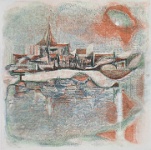THE DIALOGUE OF THE GODS
REFACE
The story of Atlantis originated with Plato in two dialogues, Timaeus and Critias, written towards the end of his life. The detailed description of the island is in Critias which he left unfinished . Timaeus and Critias were planned as part of a trilogy in which the third book was to be the contribution of Hermocrates. But Plato wrote another massive work, the Laws and died before he could go back and finish Critias. In fact the Laws became an expansion of the political and legal system of the ideal state that Socrates had asked Hermocrates to outline in his contributions to the trilogy. Its length and detail outgrew the modest scale planned for the original trilogy. The point at which Critias' story ends in mid- sentence is where Zeus has summoned the gods of Mt. Olympus to consider what to do about the people of Atlantis whose moral conduct is considered to have become so degenerate that they deserve punishment. We have already learned from Critias' contribution in Timaeus that Atlantis was destroyed in a cataclysmic flood and sank beneath the sea, and the same disaster also destroyed Bronze Age Athens and Mycenaean Attica. In the Timaeus, Critias first tells Socrates the extremely plausible origin of the Atlantis story. He heard it from his grandfather , whose close friend the poet and traveller Solon, heard it from Egyptian Saïte priests. They told the history of periodic catastrophes, floods and other upheavals that punctuated history, and of one in particular, that destroyed an island kingdom and devastated most of the known world, including Greece, about 9000 years before Solon's time. Athens was described then as “..pre-eminent in war and conspicuously the best governed in every way, its achievements and constitution being the finest of any in the world.....”.
Critias goes on in the next book of the trilogy to describe Atlantis in such convincing detail, that it was believed to be a genuine historical island kingdom. Hundreds of books and articles have been written about Atlantis, speculating about where it was. But, despite much archaeological research, no trace has been found. A recent book by the historian Peter James - 'The Sunken Kingdom' - reviews all the theories, and concludes that Plato drew the Atlantis story from multiple legends and histories, but used it as an allegory to illustrate the moral decline of a state at war with the virtuous Athens during the Golden age. James personally favours the legendary kingdom of Tantalis , a Bronze age Hittite state destroyed by a cataclysmic flood near Mt; Sipylus, as the most likely source for Plato's Atlantis. Plato intended his imaginary allegorical Atlantis to represent contemporary Athens at the end of the Peloponnesian war, defeated, and ruled by tyrants.
For many years I have been intrigued by this story and struck by its contemporary relevance at this time of global warming, climate change, and sea level rises. A powerful, and wealthy nation, which during its early history has an admirable political constitution and laws, discovers and exploits a new mineral which Plato called 'orichalc', and becomes even richer and more aggressive, conquers, colonises or dominates all the known world. Plato prophesised that to become powerful enough to dominate the known world, something more was needed than gold, silver, copper and existing natural resourses. I have used the word 'orichalc', to mean fossil fuels and all the polluting substances and derivatives, that might have existed.But her arrogance, fed by success, wealth, and material standard of living, grows disproportionately, and creates many enemies, who attempt to resist and succeed for a while. But their moral degeneration was considered enough to merit their punishment. Plato stops writing at the point when he has suggested that the catastrophe that destroyed Atlantis, Athens and most of the contemporary world is the punishment meted out by Zeus and the other gods, and is faced with having to write their dialogues.
To the Greeks the gods were personifications of human virtues and qualities, like goodness, justice, wisdom, chastity, freedom, and love, they were guardians of certain realms like the home, the sea, the underworld, and activities like medicine, agriculture, war, arts, crafts, music, and sex, and they were capable of interceding in human affairs. But they also showed very human attributes like anger, jealousy, lust, fear and malice. The older generation, Zeus and his siblings, were descended from more terrible and shadowy gods, the Titans who in turn were born of Gaea, the Earth, formed first out of Chaos.
In Timaeus, Plato, in trying to formulate a more rational and coherent creation story, comes close to a monotheistic conception of god, and this provides a clue to his inability to finish Critias' story. His view of history was cyclical and catastrophist. He believed that civilisations arose and eventually were destroyed by great catastrophes like universal floods, after each of which a few survivors had to start all over again. . The flood that destroyed Atlantis was one of these, and like the others that are common in the legends of the ancient world, was believed to be a punishment of the Gods. The Olympian gods, led by Zeus were powerful but fickle, believed to be capable of being placated by offerings, but whose punishments were limited to throwing down some thunderbolts, or punishing individuals by metamorphosing them into plants or animals or condemning them to eternal torments. The larger forces of nature like earthquakes, meteors, volcanic eruptions, tidal waves and floods capable of wiping out whole civilisations, destroying the gods' favourites as well as the sinners, were produced by something bigger, and Plato probably thought that these cataclysmic events that punctuated history were part of the grand design of his "demiurge". In Timaeus he describes the world created by his "…..framer of the universe....." as spherical, spinning on its axis, perfect and self-sufficient "for it was designed to supply its own nourishment from its own decay and to comprise and cause all processes, as its creator thought that it was better for it to be self-sufficient than dependent on anything else".
This was his description of Gaea, the embodiment of the Earth in the traditional Greek Theogony of Hesiod. It is interesting and no coincidence that modern ecologists have adopted Gaea as a symbol for the earth's biosphere, atmosphere and integrated ecosystem. It was first suggested by Sir James Lovelock, a scientist who first devised methods of measuring levels of carbon dioxide in the atmosphere, and suggested that the earth should be considered like a self regulating organism, whose integrity and balance could be upset human activity.From this lofty concept of God, Plato must have viewed the quarrelsome family of Mt. Olympus as hardlly qualified to pass judgement or hand out the sort of punishment that Atlantis (and Athens) had suffered. He was writing moral philosophy, not strictly and simply history, and the Atlantis story suited the didactic purpose of the dialogue. If, as Peter James has so convincingly argued in 'The Sunken Kingdom' it is loosely based on the legend of the kingdom of Tantalus, he either deliberately changed the names and location to be free to use the story for his own purpose, or else the legend changed in the retelling over the two centuries since Solon reputedly heard the legend of Atlantis from Egyptian priests and passed it on through Critias' family. In structure Timaeus and Critias are a history of the world from the creation by the 'demiurge' and the Atlantis story was presented as part of the prehistory of the known world and its destruction as one of the earliest of the catastrophes that punctuated history. His dialogues were a vehicle for his moral prescriptions and so it suited him to make the destruction of the people of Atlantis a punishment for their pride and moral degeneration.
When the moment came to imagine what Zeus and the gods were going to say, he was faced with a dangerous dilemma. It is likely that the words he would have put into the mouths of the Gods would reveal his identification of an imaginary Atlantis with contemporary Athens then, ruled by tyrants, who were morally degenerate, deserving punishment by the Gods. At that time, at the end of the Peloponesian wars, Plato was very pessimistic about the moral and political situation of Athens, and to continue might have left him open to a charge of treason and perhaps blasphemy, corruption of the youth of Athens and perhaps the same fate as Socrates. If he believed in the Olympian gods at all, he would have had to portray them either as ruthless, punishing everyone , or else as aware of but unable to direct or avert a global catastrophe ordained by a higher power. In any debate on the subject among the gods, given their interests and links, Athena and Hephaestos would have opposed the destruction of Atlantis and Athens, Ares would have approved of their military might and aggression, Hermes would have praised their technology and wealth, and others would have been critical or ambivalent, but opposed to wholesale destruction of most of the civilised world. Plato must have been halted by the paradox that he had created by bringing in Zeus and the Olympian gods to the dialogue of Critias. Secretly he probably believed that the cataclysm was beyond the power of the Olympian gods either to provoke or avert, but did not believe that the power that did control these things was indifferent to the affairs of men or that all life should suffer for the sins of a few.
Given the contemporary relevance of the Atlantis legend, I have imagined Plato transported in time to the present, free of the oppressive regime in Athens, and finishing Critias' account by writing the dialogue of the gods. Their vocabulary is a little archaic, but they can see and understand the contemporary world from their position of Olympian detachment. But not everyone is clearly against the dominating rich power with its advanced technology, military might, high standard of living, liberal values and free enterprise. But in the background is Gaea, personifying the spirit of the earth, whose biosphere is being destroyed, atmosphere polluted, mineral resources plundered to increase the wealth of the powerful few. They are conscious that, as before, their power over the whole "realm of change" is limited to trying to steer the affairs of the human beings who have invoked them, and try to avert the predicted cataclysms caused by the damage to Gaea that their headlong progress will trigger. Peter James writes at the end of 'The Sunken Kingdom' : "Ironically enough, it never seemed to occur to Plato that mankind itself could become an extra threat to the fragile environment […] Were he around today, Plato might have had less trouble completing his epic. We, the new Atlanteans, would have provided the model and the answer to the philosophical dilemma which seemed to halt his writing […]. Our appalling greed and abysmal lack of respect for the environment make the hubris of the old Atlanteans seem trivial. "
I began this project after making a number of prints and paintings on the Atlantis theme, but after a lot more reading, decided I needed a text to create an 'artist's book', expressing in images and words, passionately held convictions. I do not pretend to be a philosopher and hope that my presumption in trying to see the contemporary western world through the eyes of Plato will be forgiven, and that the images will be excuse enough for the exercise.
Copyright Cedric Green, 2002 - 2018 |
CLICK HERE TO DOWNLOAD FULL PDF FILE OF DIALOGUE OF THE GODS
to print out or read online
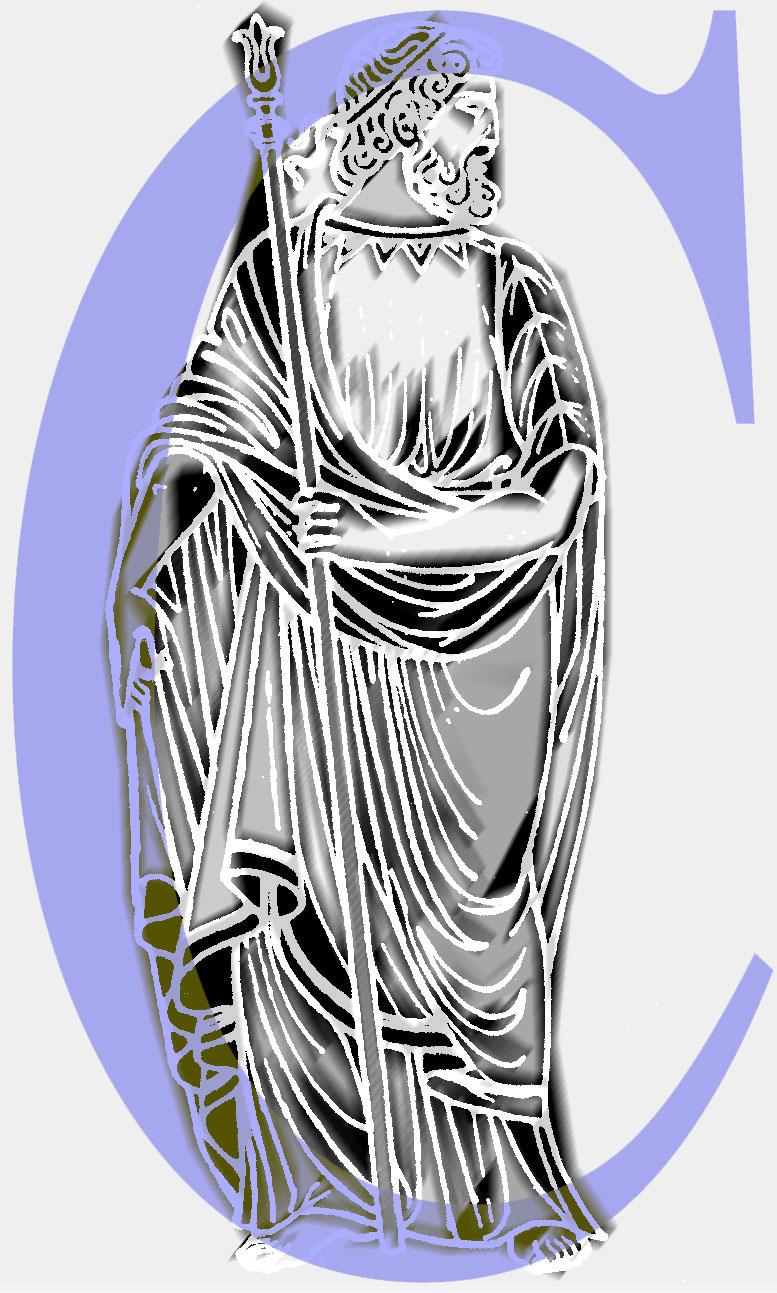
RITIAS
Unfinished last section of Plato's Critias (translated by Desmond Lee)
"This was the nature and extent of the power which existed then in those parts of the world and which god brought to attack our country. His reason, so the story goes, was this. For many generations, so long as the divine element in their nature survived, they obeyed the laws and loved the divine to which they were akin.
They retained a certain greatness of mind, and treated the vagaries of fortune and one another with wisdom and forbearance, as they reckoned that qualities of character were far more important than their present prosperity. So they bore the burden of their wealth and possessions lightly, and did not let their high standard of living intoxicate them or make them lose their self control, but saw soberly and clearly that all these things flourish only on a soil of common goodwill and individual character, and if pursued too eagerly and overvalued destroy themselves and morality with them. So long as these principles and their divine nature remained unimpaired the prosperity which we have described continued to grow.
But when the divine element in them became weakened by frequent admixture with mortal stock, and their human traits became predominant, they ceased to be able to carry their prosperity with moderation. To the perceptive eye the depth of their degeneration was clear enough, but to those whose judgment of true happiness is defective they seemed, in their pursuit of unbridled ambition and power, to be at the height of their fame and fortune. And the god of gods, Zeus, who reigns by law, and whose eye can see such things, when he perceived the wretched state of this admirable stock decided to punish them and reduce them to order by discipline.
He accordingly summoned all the gods to his own most glorious abode, which stands at the centre of the universe and looks out over the whole realm of change, and when they had assembled addressed them as follows: . . . ."










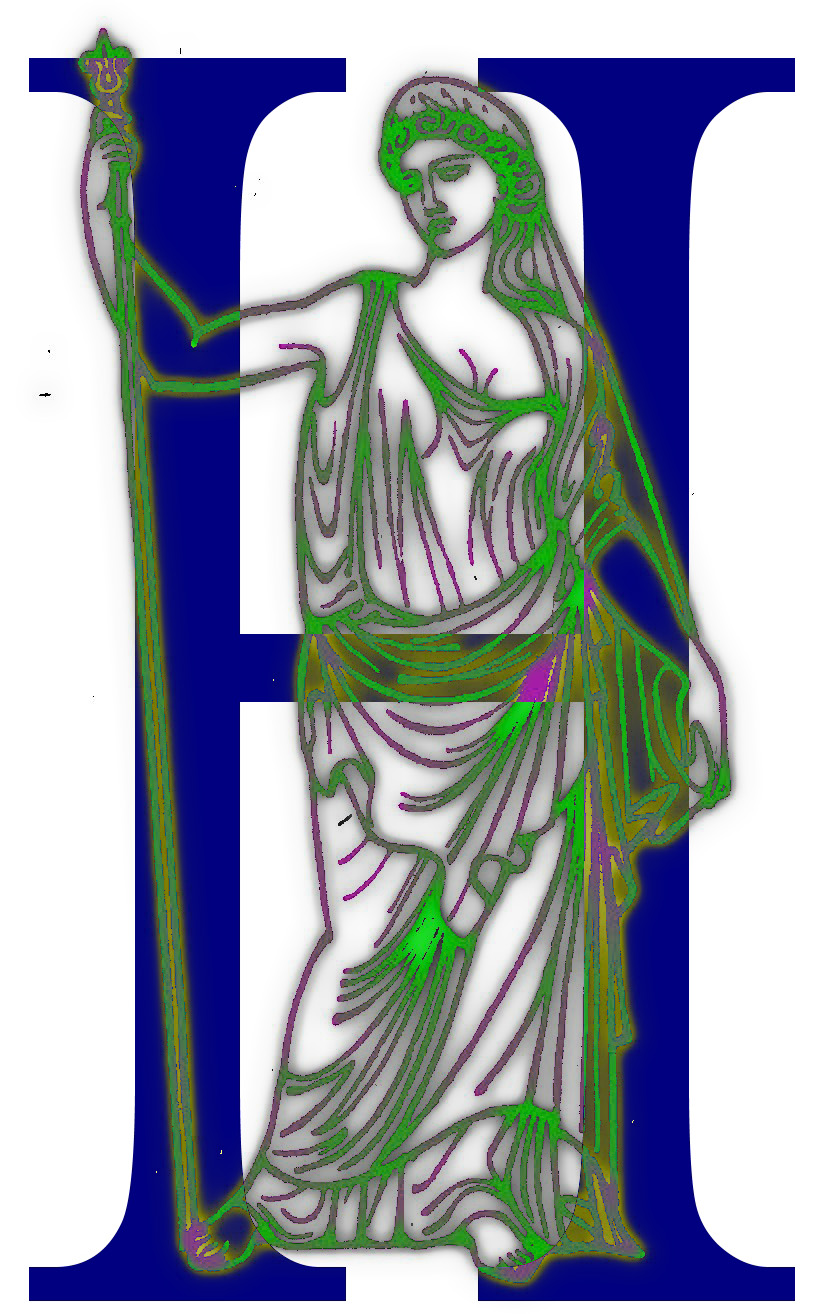
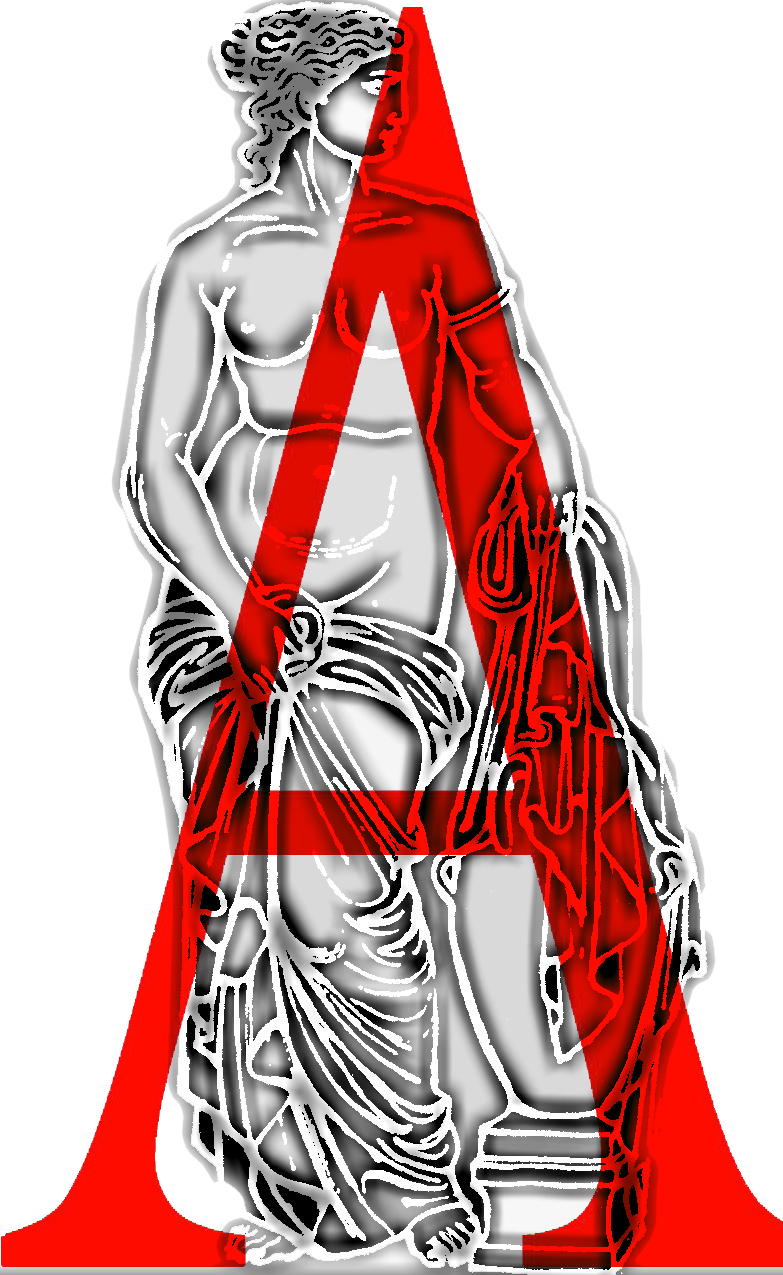

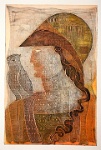
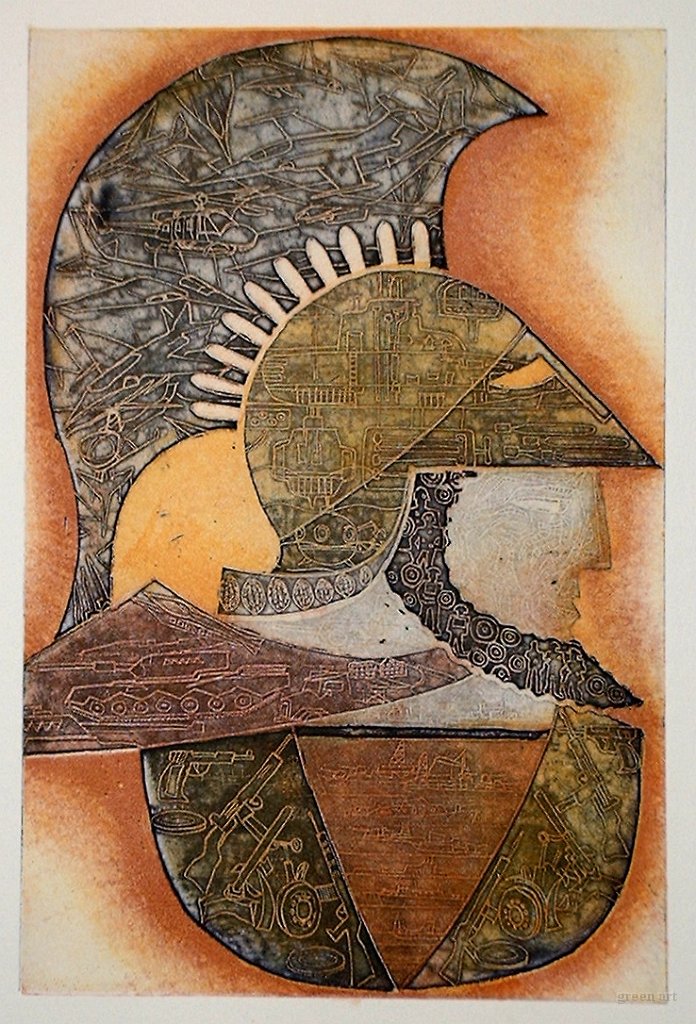




.jpg)




